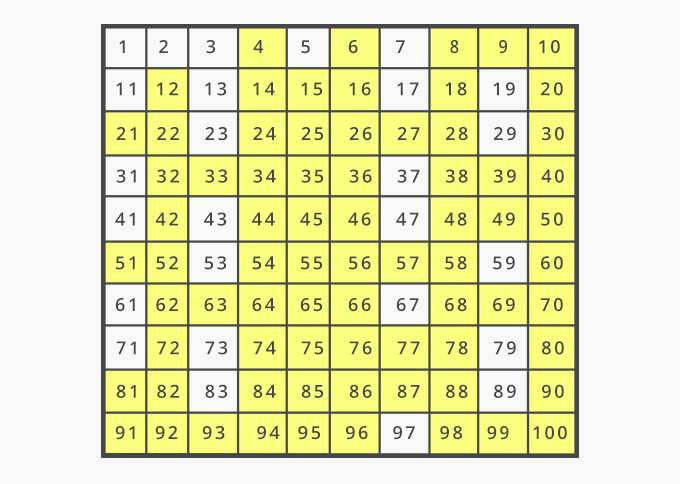


I'll give you some pointers, because it will turn out to be useful every now and then to know the primes under 100. There isn't a really easy way, but you can write your own list of prime numbers less than 100 without much trouble (if you can't look up the list, as in our FAQ). There is no shortcut for this.īut what if you don’t have such a list? That’s where Brooke wants help. The problem itself requires trial and error: You have to look at a list of primes and try to find pairs that add to 100 (perhaps by subtracting each prime from 100 and seeing if the result is on the list).

Well some are obvious but if I'm going from 1-100 I need an easy way. I want to know a simpler way than trying to multiply a bunch of numbers together. What is an easy way to determine if a number is prime?Įxample: Write the number 100 as the sum of two prime numbers.įor me it is difficult to determine whether or not a number is prime. We’ll start with this question from 2008: Checking if a Number from 1-100 is Prime The next question many students have is, how can I make a list of prime numbers (or write a computer program to do so)? We’ll learn about the Sieve of Eratosthenes, and list all the prime numbers up to 1000. We’ve looked at what prime numbers are, and how the concept extends (or doesn’t) to 0, 1, and negative integers.


 0 kommentar(er)
0 kommentar(er)
